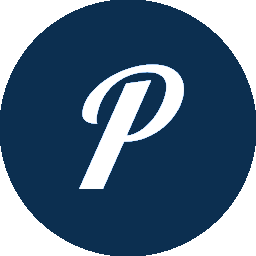SUSE S.A.: The Supervisory Board of SUSE S.A. nominates Sheng Liang to the Supervisory Board, replacing Matteo Thun
|
DGAP-News: SUSE S.A.
/ Key word(s): Personnel
SUSE S.A. (the “Company”) today announces that, following a proposal from the Company’s Nomination and Remuneration Committee, the Supervisory Board has appointed Sheng Liang to the Supervisory Board with immediate effect, until the Company’s next shareholder meeting. With this step Sheng Liang is transitioning from his operating role as President of Engineering and Innovation to a non-executive role on the Supervisory Board. Sheng Liang, before joining SUSE through the acquisition of Rancher Labs was the CEO and co-founder of Rancher Labs. He has been instrumental in the rapid growth of the Company’s expanding portfolio into the container management and security space.
Sheng Liang will replace EQT Partner Matteo Thun, who resigned from the Supervisory Board on 6 July 2022. The Supervisory Board intends to propose Sheng Liang for appointment to the Supervisory Board at the Company’s next shareholder meeting. EQT will continue to be represented on the Supervisory Board by Johannes Reichel. Jonas Persson, the Chair of the Supervisory Board, said: “On behalf of the Supervisory Board, I would like to thank Sheng for agreeing to join the SUSE Board. Sheng has been an integral part of the SUSE family since he joined as part of the Rancher acquisition in November 2020 and I look forward to his transition from an operational role as President of Engineering and Innovation to a member of the Supervisory Board. Sheng brings invaluable industry experience and knowledge to the Supervisory Board and I look forward to working with him as SUSE continues to develop and grow. Matteo has been an instrumental part of the SUSE journey since the carve out from Micro Focus in 2018. I would like to thank Matteo for his dedication and contributions to SUSE since his appointment to the Supervisory Board and to the Audit Committee at the time of the IPO.” Henning Kagermann has replaced Matteo Thun on the Company’s Audit Committee following his resignation.
07.07.2022 Dissemination of a Corporate News, transmitted by DGAP - a service of EQS Group AG. |
| Language: | English |
| Company: | SUSE S.A. |
| 11-13 Boulevard de la Foire | |
| 1528 Luxembourg | |
| Luxemburg | |
| ISIN: | LU2333210958 |
| WKN: | SUSE5A |
| Indices: | SDAX, TecDAX |
| Listed: | Regulated Market in Frankfurt (Prime Standard); Luxembourg Stock Exchange |
| EQS News ID: | 1392397 |
| End of News | DGAP News Service |
|
|
1392397 07.07.2022
P R O D U C T S U G G E S T I O N S
The information presented here has been provided by our content partner EQS-Group. The originator of the news is the respective issuer, the company relating to the news, a publication service provider (press or information agency) which uses the distribution service of EQS to transmit company news to shareholders, investors, investors or interested parties. The original publications and other company-relevant information can be found at eqs-news.com.
The information you can access does not constitute investment advice. The presentation of our cooperation partners, where the implementation of investment decisions would be possible depending on the individual risk profile, is solely at the discretion of the person using the service. We only present companies of which we are convinced that the range of services and customer service will satisfy discerning investors.
If you are considering leverage products, familiarise yourself with the typical characteristics of the financial instruments beforehand. Take the time to determine the risk content of the planned investment before making an investment decision. Bear in mind that a total loss cannot be ruled out with leverage products.
For newcomers to the subject, we offer various options in both the training and the tools section, through which you can train theoretical knowledge and practical experience and thus improve your skills. The offer ranges from participation in webinars to personal mentoring. The range is continuously being expanded.
1 Lab features are usually functionalities that emerge from the think tank of the investor community. In the early stages, these are experimental functionalities whose development process is largely determined by use and the resulting feedback from the community. When integrating external services or functionalities, the functionality can only be guaranteed to the extent that the individual process elements, such as interfaces, interact with each other.




